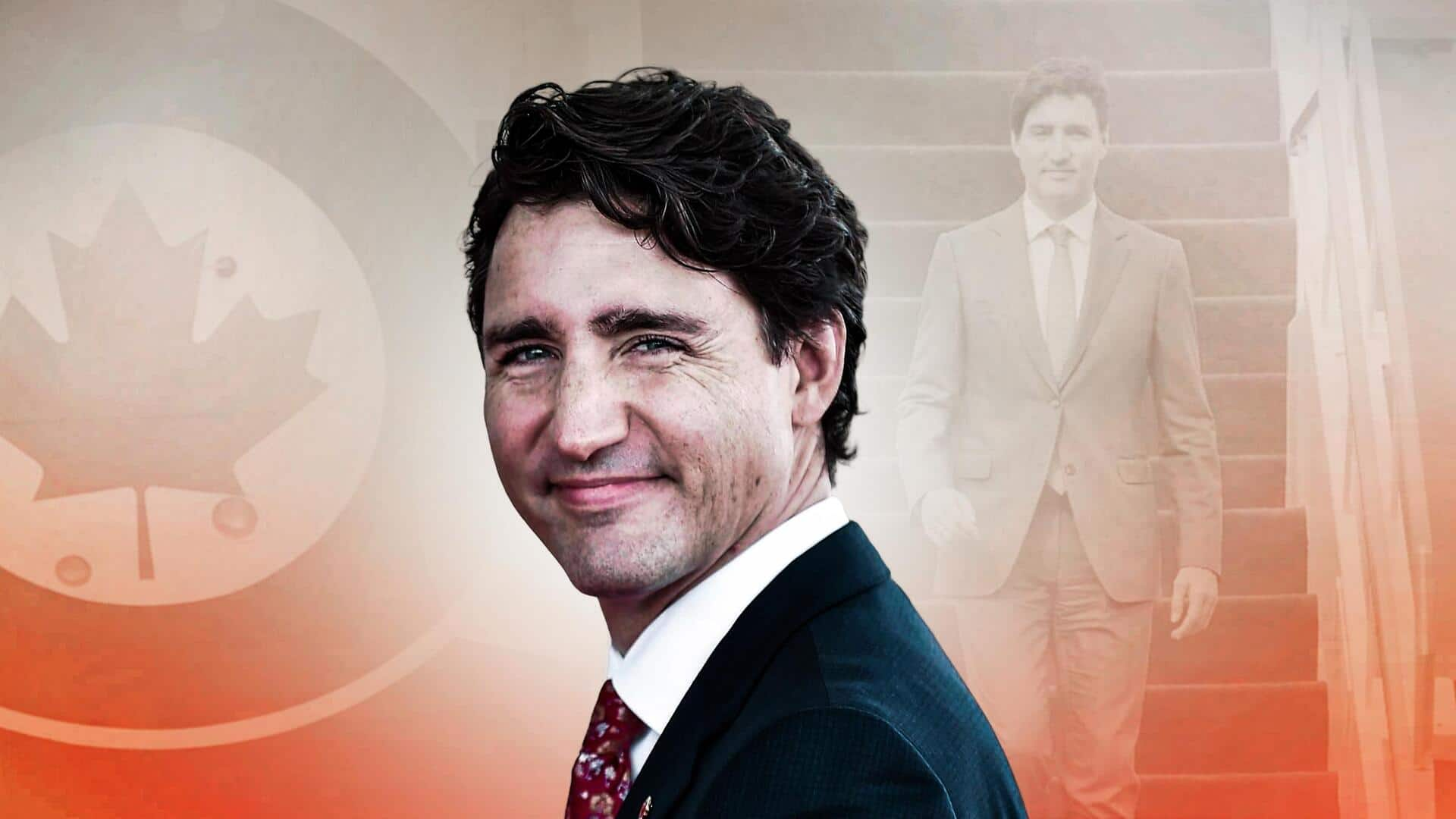
Canadian PM Trudeau leaves India after being stranded for 36hrs
What's the story
Canadian Prime Minister Justin Trudeau finally flew back home on Tuesday after a technical snag with his plane—which left him and his delegation stranded in New Delhi for nearly 36 hours—was resolved, per reports.
His India visit for the G20 Summit was marred by diplomatic and aircraft issues, causing him to extend his stay at Delhi's Lalit Hotel.
It also came amid tensions between both countries over pro-Khalistani elements allegedly promoting secessionism and inciting violence against Indian diplomats in Canada.
Context
Why does this story matter?
At the recently-concluded summit, Trudeau faced backlash from India over allegations of fostering Khalistani elements in Canada. Additionally, reports suggested leaders from various countries ignored him.
Notably, Trudeau chose not to attend the dinner for G20 leaders, following which India rejected his request for a bilateral meeting.
Furthermore, the snag with his plane—reportedly belonging to Canada's aging fleet notorious for its frequent malfunctions—embarrassed him further and led to discussions about the poor state of the country's other infrastructure, too.
Details
MoS Rajeev Chandrasekhar waves off Trudeau at Palam Airport
Trudeau left New Delhi on Tuesday afternoon on his Airbus A310 plane, Bloomberg reported, citing Indian officials.
Union Minister of State (MoS) for Electronics and Information Technology, Rajeev Chandrasekhar, and other officials reportedly waved off the Canadian PM at Delhi's Palam Airport.
Later, the MoS posted a photograph of himself with Trudeau on his X account. He also expressed gratitude to the Canadian premier on behalf of PM Narendra Modi for attending the G20 Summit.
Twitter Post
What Chandrasekhar posted on X
On behalf of PM @narendramodi Ji and my colleagues in govt, I was at the airport today to thank Mr. Justin Trudeau, Hon’ble Prime Minister of Canada @JustinTrudeau for his presence at the #G20Summit and wished him and his entourage a safe trip back home. 🇮🇳 🇨🇦 pic.twitter.com/8gEg694YCs — Rajeev Chandrasekhar 🇮🇳 (@Rajeev_GoI) September 12, 2023
What Next?
Trudeau's airplane glitch sparks controversy in Canada
While reports said a part of Trudeau's aircraft led to the glitch, the exact cause remains unknown. However, it has stirred controversy in Canada.
Political commentator Tom Mulcair called it a "debacle" on CTV, criticizing the Canadian government for not ordering new planes and creating "an embarrassing issue."
Notably, this is not the first time Trudeau's aircraft faced problems during a visit to India. A similar issue occurred on his 2018 trip, too.
Reports
Aging fleet of Canada sparks replacement debate
The Royal Canadian Air Force uses the CC-150 Polaris—a modified version of the A310—to transport top government officials, including the PM.
It has been in service since the 1980s and requires frequent refueling.
To address this, Canada is replacing these planes with Airbus 330s, but they are still undergoing retrofitting.
The controversy surrounding these planes first erupted in the 1990s when former PM Brian Mulroney purchased and retrofitted a similar aircraft, which led to criticism from his successor, Jean Chretien.
Details
Modi raises concerns over anti-India activities in Canada
During Trudeau's visit, PM Modi reportedly conveyed strong concerns over anti-India activities by extremist elements in Canada.
Although Trudeau assured action against secessionism, he cited freedom of expression and peaceful protests, saying, "The actions of the few do not represent the entire community."
To recall, in July, India summoned the Canadian envoy and issued a demarche over the rising activities by pro-Khalistani elements in Canada.
This came after posters featuring senior Indian diplomats serving in Canada surfaced in certain areas.
Insights
Strengthening India-Canada relations at G20 Summit
In "pull-aside" talks with Trudeau on the sidelines of the G20 Summit, PM Modi stressed that "mutual respect and trust" were essential for Indo-Canadian ties.
However, Trudeau later asserted at a press conference that Canada will always defend the freedom of peaceful protests but will also prevent violence and hatred.
The future of India-Canada relations depends on addressing each other's concerns and fostering mutual respect and trust.